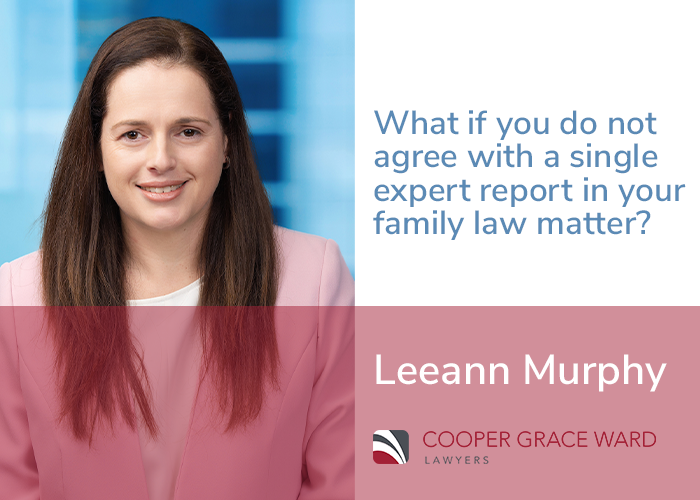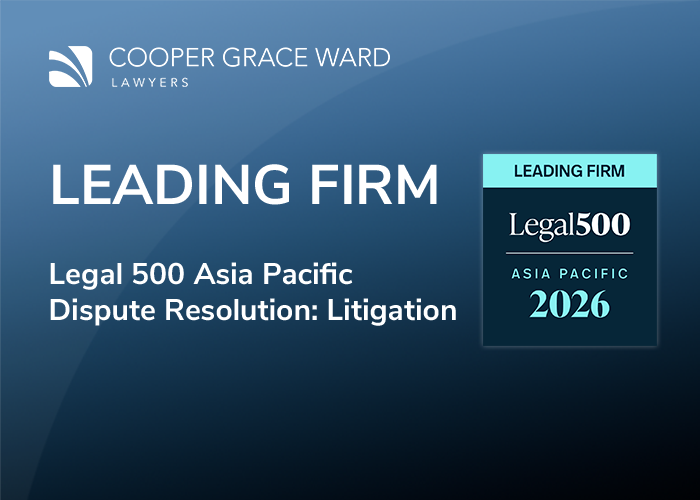Video transcript
Hello, I’m Leeann Murphy and I’m a member of the family law team at Cooper Grace Ward Lawyers. Today, I will be discussing the role of a single expert and what to do if you don’t agree with the contents or findings of the report.
What is a single expert report?
A single expert report is written by an expert witness in relation to a particular issue in a family law matter, such as the value of property, a mental health issue, or the welfare of children. A single expert is a witness that is appointed by the court or by agreement between the parties to prepare an expert opinion about an issue in dispute. The purpose of an expert witness report is to provide the court with impartial and independent information about an issue, an expert report, and will assist the court in making a decision about an issue without unnecessary delays in considering evidence from multiple experts. A single expert witness must comply with the rules, legislation and guidelines in relation to this issue. A single expert report must include: details of the name and qualifications of the expert, the information relied upon in preparing the report, the facts and assumptions upon which the report is based, any documents which have been used in the preparation of the report, any limitations in respect of the qualifications of the expert and any matters that fall well outside the expertise of the expert in that case.
What if I don’t agree with the contents of the expert report?
If you don’t agree with the contents or the findings of an expert report, there are a number of options available to you. It is possible to seek permission from the court to adduce additional evidence from an expert in the same field. This is not a common or easy thing to do, and the court will only give permission for this to occur in exceptional circumstances. You will need to show that the evidence provided by the expert witness is incomplete, incorrect, or unreliable. You will also need to show that additional evidence from a different expert will be necessary for the court to determine this issue. It is possible to cross examine an expert witness at trial. This is often the easiest and most common approach taken. In this respect, you can ask questions about the witnesses qualifications, methodologies, assumptions and conclusions. It is also possible to challenge the witness in relation to other evidence which is different or contradicts the opinion of that particular expert evidence. It’s also possible to seek an order dismissing an expert witness. This is rare and extreme and will only occur in situations where that witness is incorrect, unreliable or unavailable. You will need to demonstrate to the court that the witness has breached its duty to the court or that their report is so prejudicial that it cannot be relied upon by the court. These are some of the ways in which you can challenge an expert report if you do not agree with it. However, each case is different and you should obtain legal advice in relation to your options.
If you have questions in relation to this issue, please contact us.





